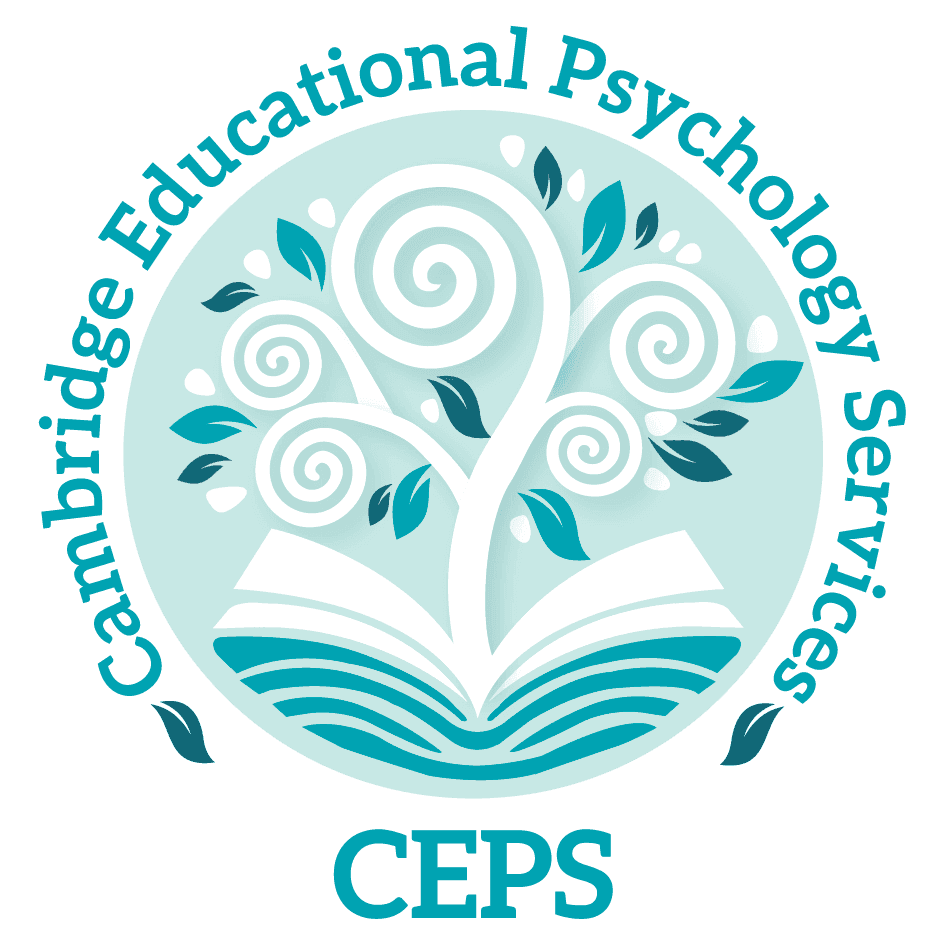At Cambridge Educational Psychology Services, we understand that learning to read is one of the most important skills children begin to develop when they start school. Every child learns to read and spell at their own pace. However, if your child is having much more difficulty with reading and spelling than others their age — even with lots of practice and support — they might be showing signs of dyslexia.
Dyslexia is not caused by problems with eyesight or hearing. It is part of how the brain is wired and often runs in families. About one in ten people have dyslexia.
What is Dyslexia
Dyslexia is a lifelong difference in how the brain processes written language. It affects how people recognise letters, link letters to sounds, and read words. Children with dyslexia may read more slowly, mix up letters and sounds, and find spelling tricky. This does not mean they are less intelligent — children with dyslexia are often bright and creative thinkers who simply learn in different ways.
Signs of Dyslexia

In young children (before school):
Learning to talk later than other children.
Struggling to learn new words.
Mixing up sounds in words (for example, saying "pasghetti" instead of "spaghetti").
Difficulty recognising letters in their own name.
A family history of reading and spelling difficulties.

In early school years:
Difficulty sounding out simple words like "cat" or "dog".
Not recognising that letters represent sounds.
Struggling to remember letter patterns and rules.
Taking a long time to complete reading or writing tasks.
Avoiding reading aloud or becoming upset when asked to read.

In older children:
Reading and spelling mistakes that continue despite extra help.
Slow, effortful reading.
Difficulty remembering words or spelling patterns.
Avoiding reading and writing whenever possible.
Low confidence, frustration, or feeling "stupid" (which they are not!).
How is Dyslexia diagnosed?
If you are concerned, start by talking to your child’s teacher. They can tell you how your child is progressing. If concerns continue, your next step might be visiting your family doctor or paediatrician. They can check hearing and vision and help refer your child to a psychologist for a full educational assessment.

The psychologist’s assessment will look at your child’s strengths and challenges in:
Reading accuracy and fluency
Spelling
Memory
Vocabulary
Thinking and problem-solving skills
How they process sounds and language
A diagnosis is only made if difficulties have lasted at least six months and your child has already had good teaching support.
How can children with Dyslexia be supported?
With the right help and support, children with dyslexia can thrive both in school and in life.
Helpful support can include:
Special teaching programs that focus on learning the sounds that letters make (this is called synthetic phonics).
Wordchain is an online programme producted in NZ for reading and spelling.
www.deb.co.nz/resource-hub/curriculum-choices/reading-and-spelling
Technology, like audiobooks, speech-to-text, and text-to-speech tools.
Alternative arrangements at school, such as more time in tests or reading instructions aloud.
Working with a specialist tutor to practise reading and spelling skills in a way that works for your child.
How can families help?
Talk to your child about dyslexia. Help them understand that it is just one part of who they are and not a reflection of their intelligence.
Read aloud together. Take turns, and make reading a relaxed, fun time.
Praise effort, not just results. Celebrate small achievements and remind your child of their other strengths and talents.
Create a calm, organised homework space. Make time for breaks and limit distractions.
Stay in touch with your child’s teachers. Regular conversations can help everyone stay on the same page.
Encourage interests and hobbies that build confidence, like sports, art, music, or drama.
Use assistive technology if it helps your child access learning.
Join a support group or connect with other parents who understand the journey.

